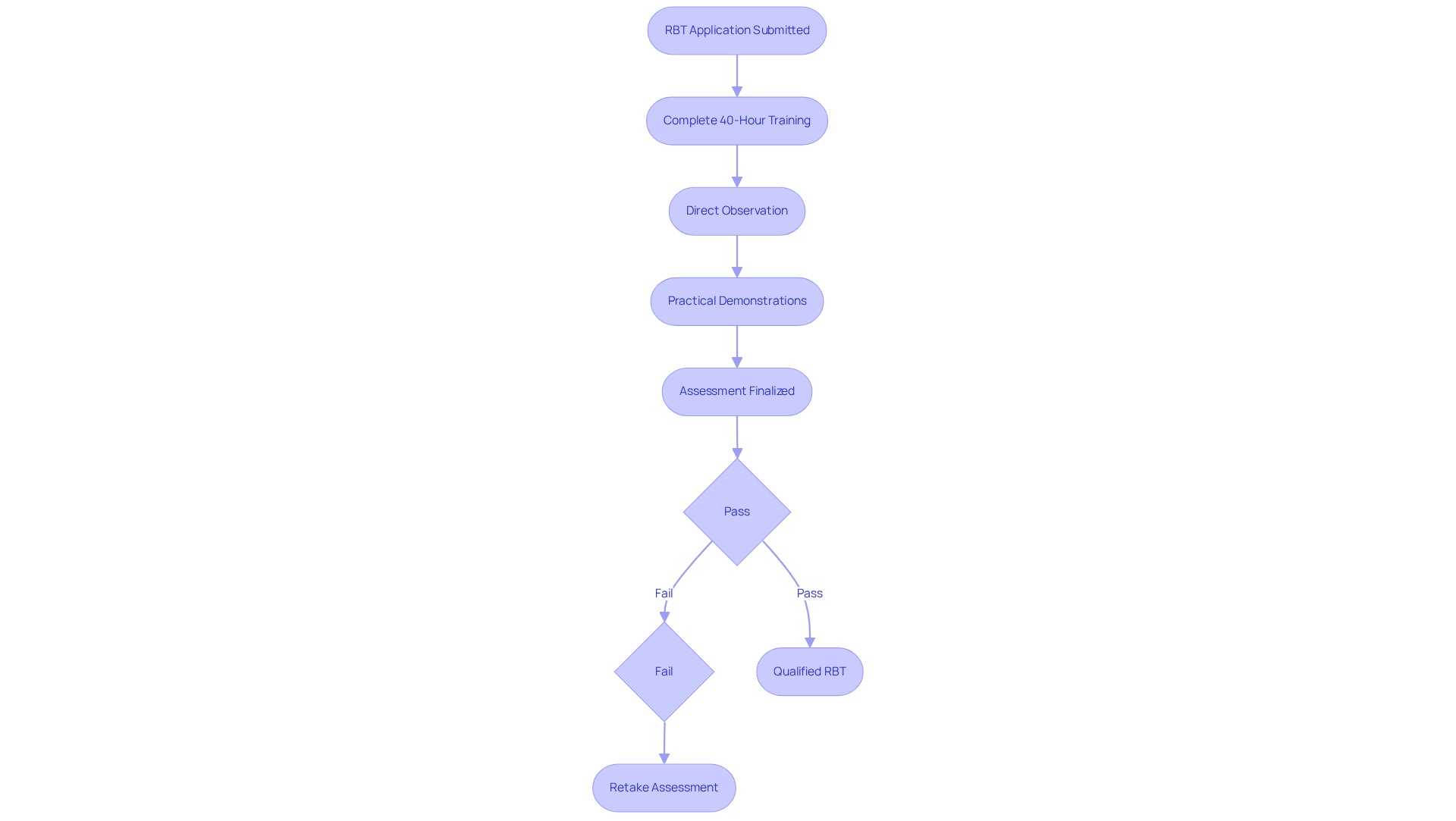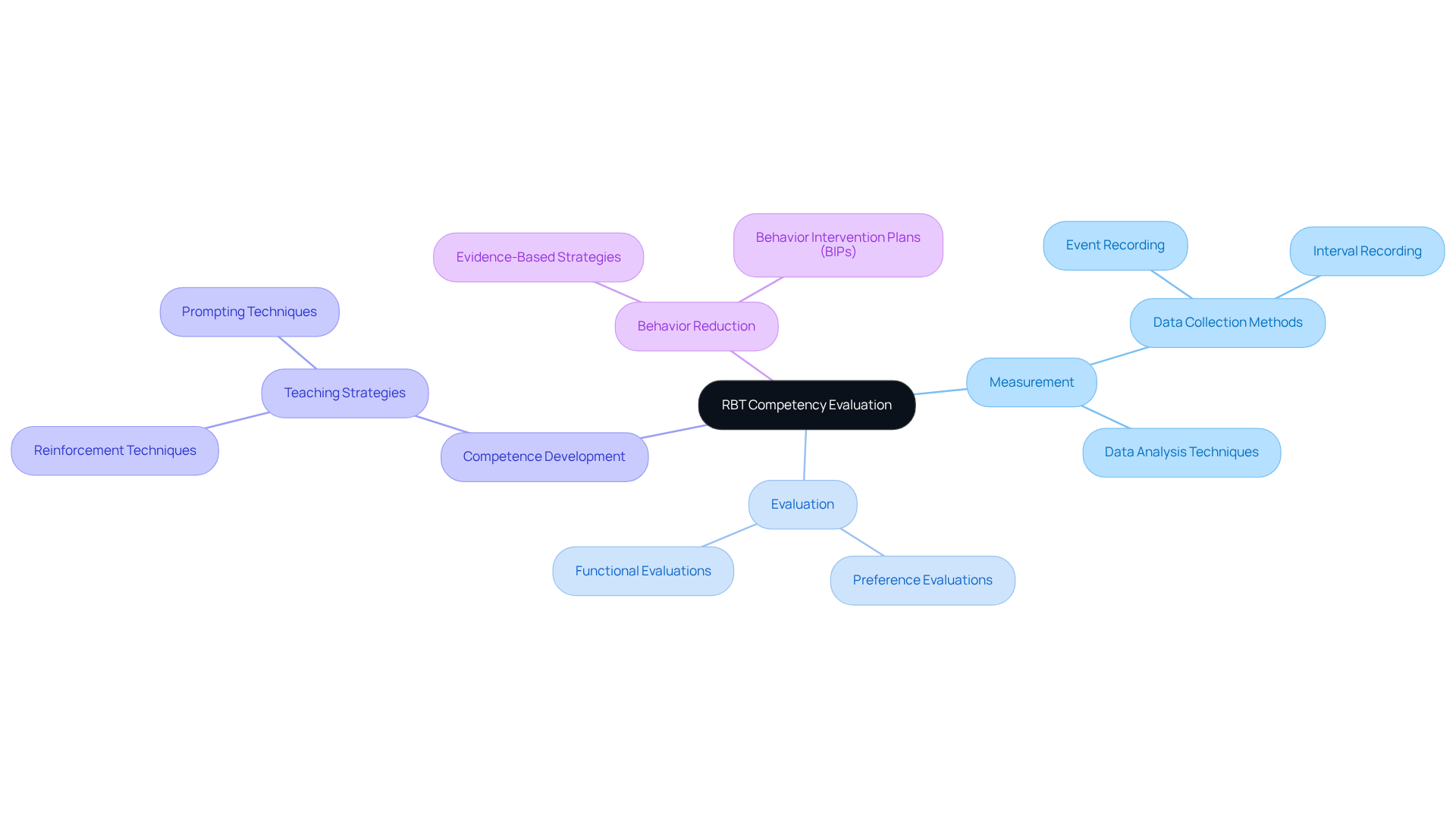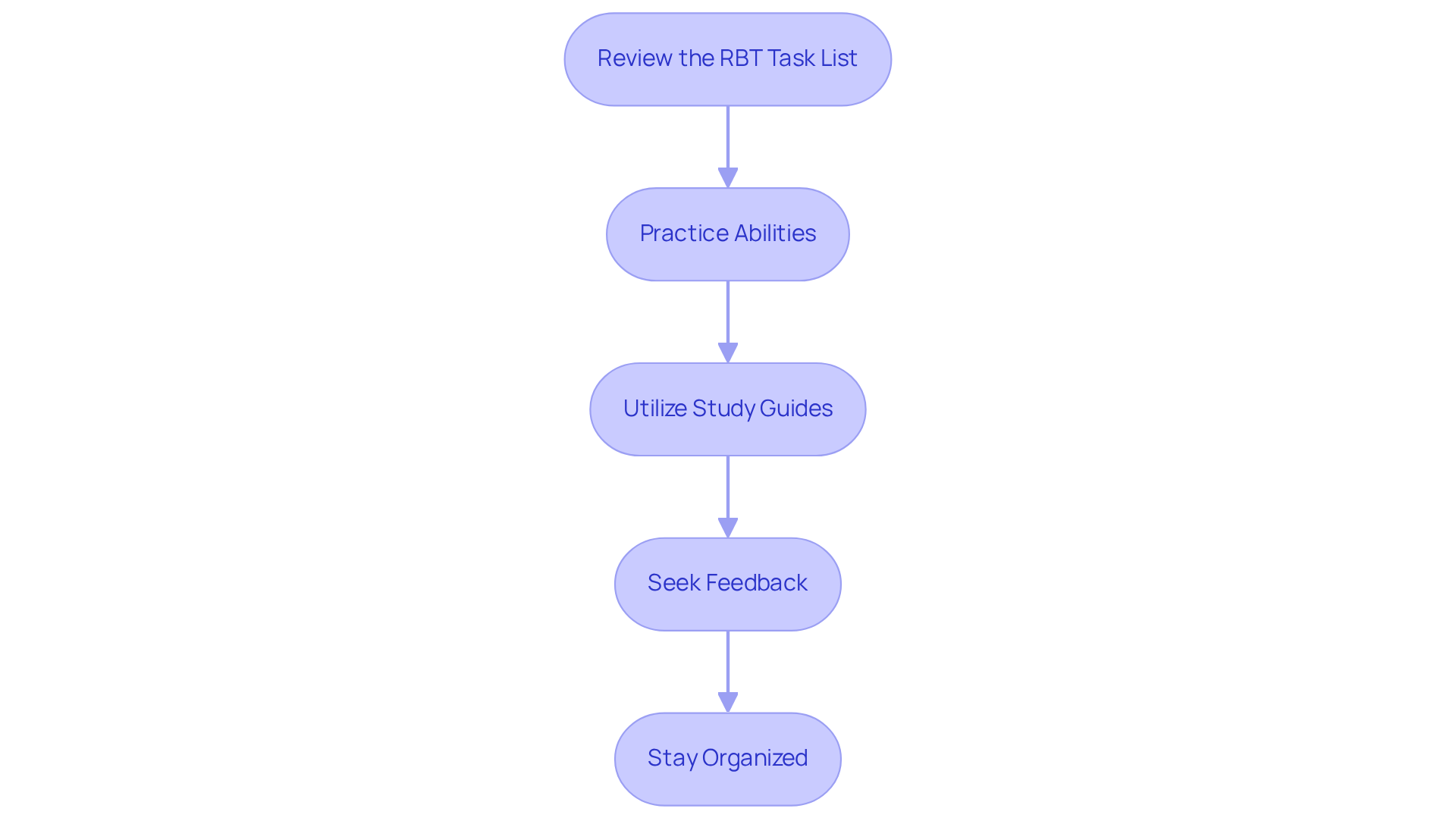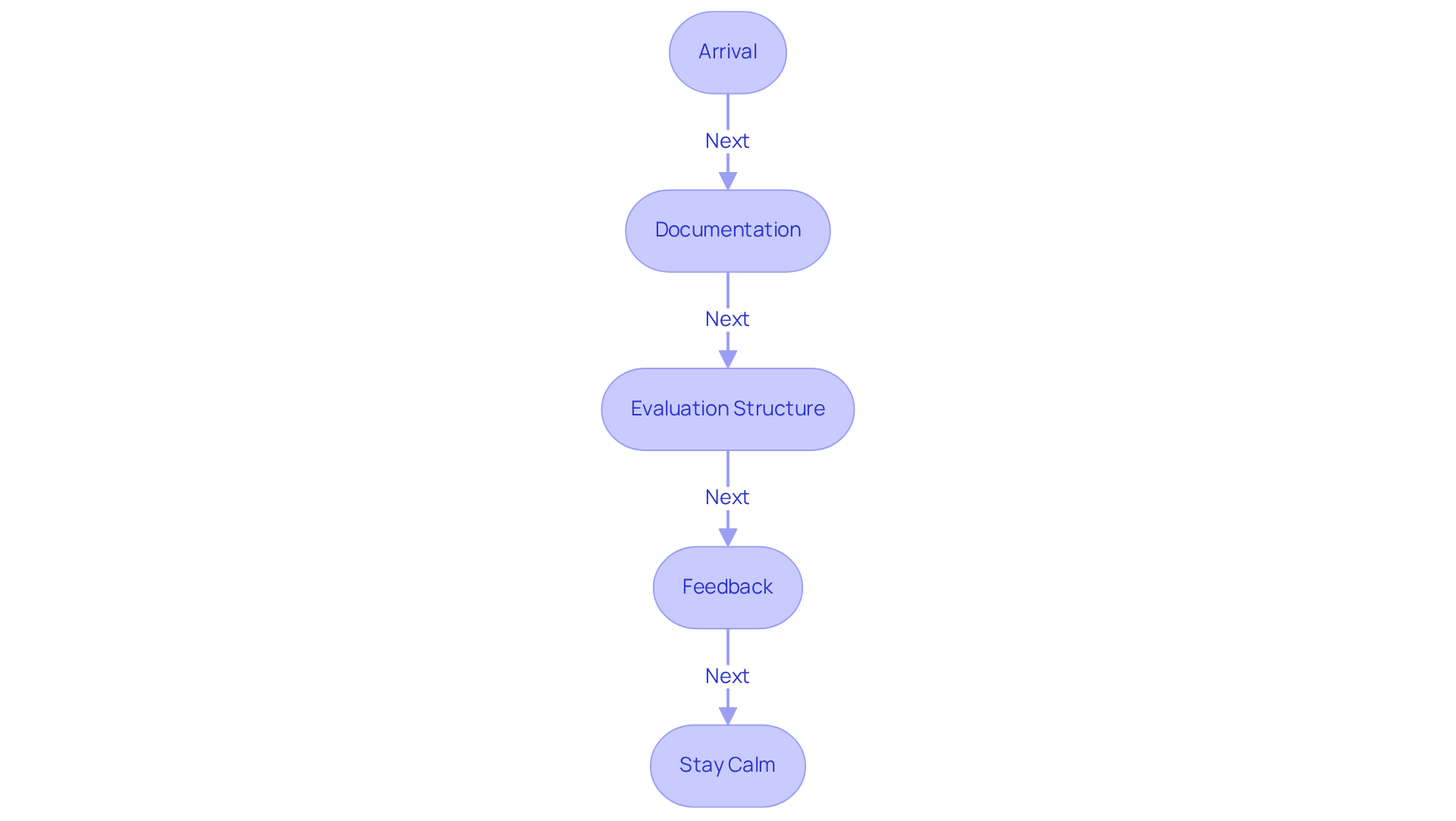July 4, 2025

Mastering the RBT Competency Assessment requires a strategic approach. Understanding the assessment's structure is essential, as is reviewing the RBT Task List. Practicing essential skills and preparing effectively for evaluation day are pivotal steps. Thorough preparation and familiarity with the competencies assessed—such as measurement, evaluation, and behavior reduction—are crucial for success. These elements equip candidates with the necessary skills and confidence to excel during the assessment.
Are you ready to enhance your preparation strategies and ensure your success?
Understanding the intricacies of the RBT competency assessment is crucial for aspiring Registered Behavior Technicians. Many approach this pivotal evaluation with uncertainty, yet it is essential to recognize that this assessment validates the skills necessary for effective practice in ABA therapy. Moreover, it serves as a gateway to professional success.
With a national average pass rate hovering between 70% and 80%, the stakes are high. How can candidates ensure they stand out and excel in this competitive landscape?
The RBT competency assessment is an essential evaluation that confirms Registered Behavior Technicians (RBTs) possess the requisite skills and knowledge to perform their roles effectively. This assessment occurs after completing a 40-hour training program and must be finalized within 90 days of submitting an RBT application. It entails direct observation and practical demonstrations in key areas such as measurement, evaluation, skill acquisition, and behavior reduction. Understanding the structure and requirements of this evaluation is vital for successful completion.
Notably, the national average pass rate for typically ranges between 70% and 80%. This statistic underscores the necessity of thorough preparation. Candidates who excel in the evaluation often emphasize the significance of practical experience and familiarity with the RBT Task List, which enhances their confidence and performance during the assessment. As one BCBA remarked, 'The RBT Competency Evaluation is not just a test; it’s a vital step in ensuring that RBTs are equipped to provide effective support in ABA therapy.'
Are you facing challenges in hiring qualified RBTs? Consider how the RBT competency can ensure that your candidates are not only well-trained but also ready to deliver effective support. By prioritizing this crucial evaluation, you can enhance the quality of care provided in ABA therapy.

The RBT competency evaluation assesses candidates on 20 specific task items organized into four primary domains: measurement, evaluation, competence development, and behavior reduction. Each domain encompasses vital skills that RBTs must exhibit:
Familiarizing yourself with these RBT competencies is crucial for effective preparation, as they lay the groundwork for successful practice in ABA therapy. Industry leaders assert that mastery of these skills not only signifies readiness for the RBT role but also enhances RBT competency, thereby elevating the overall quality of care provided to individuals with autism and related disorders. Incorporating insights from case studies, such as the significance of professionalism in assessing RBT competency, can further illustrate the practical application of these competencies.

To prepare effectively for the [RBT Competency Assessment](https://hireaba.today), consider these essential steps:
By following these steps, you can cultivate confidence and proficiency in the abilities required for the evaluation.

On the day of the RBT competency assessment, candidates should focus on several key aspects to ensure a successful experience.
By being well-prepared for these elements and understanding the common challenges, candidates can enhance their RBT competency and navigate the assessment day with greater ease and confidence.

Mastering the RBT competency assessment is crucial for aspiring Registered Behavior Technicians, as it validates their skills and opens doors to professional opportunities in ABA therapy. Understanding the structure, requirements, and key competencies assessed allows candidates to approach this evaluation with confidence and clarity.
Thorough preparation is essential. Candidates should:
Emphasizing the four primary domains—measurement, evaluation, competence development, and behavior reduction—provides a comprehensive framework that candidates must master to succeed. Additionally, knowing what to expect on assessment day, from documentation to maintaining composure, equips candidates to navigate this pivotal experience.
Ultimately, the RBT competency assessment serves as a vital benchmark for ensuring that RBTs are prepared to deliver effective support to individuals with autism and related disorders. By prioritizing preparation and understanding the evaluation's significance, candidates enhance their skills and contribute to the overall quality of care in ABA therapy. Aspiring RBTs should embrace this challenge as a pathway to professional growth and impactful service.
What is the RBT competency assessment?
The RBT competency assessment is an evaluation that confirms Registered Behavior Technicians (RBTs) have the necessary skills and knowledge to perform their roles effectively.
When does the RBT competency assessment take place?
The assessment occurs after completing a 40-hour training program and must be finalized within 90 days of submitting an RBT application.
What does the RBT competency assessment involve?
The assessment involves direct observation and practical demonstrations in key areas such as measurement, evaluation, skill acquisition, and behavior reduction.
What is the average pass rate for first-time RBT exam takers?
The national average pass rate for first-time RBT exam takers typically ranges between 70% and 80%.
What factors contribute to success in the RBT competency assessment?
Candidates who succeed often emphasize the importance of practical experience and familiarity with the RBT Task List, which boosts their confidence and performance during the assessment.
Why is the RBT competency evaluation important?
The RBT competency evaluation is crucial as it ensures that RBTs are equipped to provide effective support in ABA therapy, enhancing the quality of care provided.
How can organizations benefit from prioritizing the RBT competency assessment?
By prioritizing this assessment, organizations can ensure that their candidates are not only well-trained but also ready to deliver effective support in ABA therapy.
Our expert recruitment strategies and AI-driven sourcing ensure that you receive top-notch candidates quickly, without compromising on quality. Whether you’re looking for BCBAs, Clinical Directors, or RBTs, we’ve got you covered.